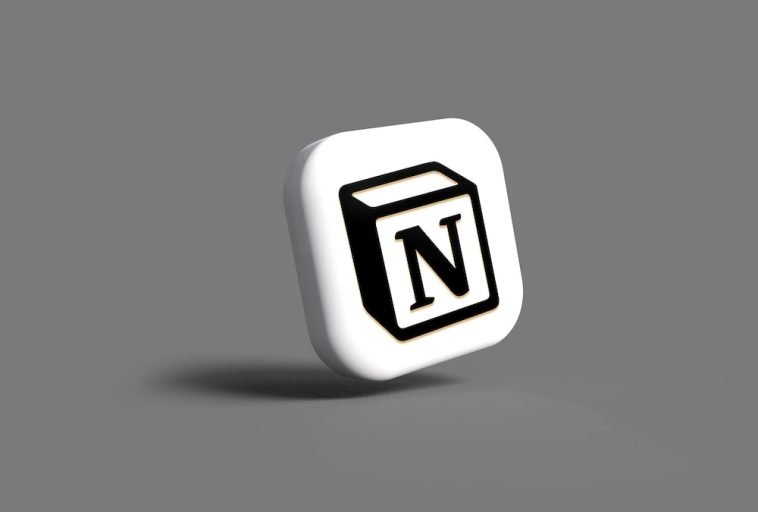Introduction.
If you’re reading this, there’s a good chance you’re looking for ways to streamline your content creation process.
Maybe you feel overwhelmed by endless notes scattered across different apps or struggle with maintaining an editorial calendar. If that sounds familiar, you might want to take a closer look at Notion.
It’s one of those all-in-one productivity tools that are becoming increasingly popular, and it’s especially loved by content creators for good reason.
But how does Notion work for content creation? Is it just another shiny app that promises a lot but doesn’t deliver, or is it genuinely a game-changer?
Stick around, and I’ll break down exactly how to use Notion for planning, organizing, and even executing your content strategy.
I’ll cover what makes it great, what might hold it back, and some practical tips you can start using right away.
Why Notion?
Let’s face it: managing content creation can be a mess. Between brainstorming ideas, organizing research, planning content calendars, writing drafts, and keeping track of collaboration, it’s easy for things to get out of hand.
That’s where Notion steps in. Notion isn’t just about taking notes; it’s a powerhouse of features designed to make your life easier.
From simple task management to creating comprehensive databases for your projects, it can handle a lot. Plus, it’s completely customizable, so you can set it up to fit your specific workflow.
What Makes Notion Stand Out for Content Creation?
Before we dive into how to use it, let’s explore some reasons why Notion might be the right tool for you:
- Customizable Workflows: Notion doesn’t come with a predefined structure. You get to build it the way you want. That means you can create custom templates, organize your content in a way that makes sense to you, and tweak things whenever your process evolves.
- All-in-One Tool: Instead of juggling multiple apps for task management, writing, brainstorming, and storing references, you can do it all in one place. This can save you a lot of time and reduce the digital clutter.
- Collaboration Made Easy: If you work with a team, Notion’s collaborative features allow for real-time editing, comments, and mentions. Plus, sharing pages with clients or team members is as simple as sending a link.
- Aesthetically Pleasing Interface: Let’s be honest: we all love a tool that’s nice to look at. Notion’s interface is clean and modern, which makes working on it a lot more enjoyable.
How Do I Use Notion for Content Creation?
Let’s get into the specifics. Here’s a breakdown of how you can use Notion for every step of the content creation process:
1. Idea Generation & Brainstorming
Start with an “Idea Bank.” This can be a simple Notion page or a database where you dump every content idea that comes to mind.
Use tags or categories to sort these ideas by type (e.g., blog posts, videos, podcasts) or by status (e.g., in progress, published). You can even create linked pages for each idea where you collect research, references, or inspiration.
Pro Tip: Use Notion’s toggle lists to keep your page organized. For example, hide long lists of content ideas under a toggle so your workspace doesn’t look cluttered.
2. Content Calendars
One of the most powerful features of Notion is its databases, and you can use them to create a content calendar. Create a database that includes fields like:
- Content Type: Blog post, YouTube video, Instagram post, etc.
- Status: Idea, Writing, Editing, Scheduled, Published.
- Deadline: A date field to keep track of your publishing schedule.
- Priority: To help you decide what needs your immediate attention.
- Collaborators: If you work with a team, add fields for who’s responsible for what.
View Options: You can switch between a calendar view to see your deadlines or a Kanban board to visualize your content by status. It’s completely up to you!
3. Writing & Drafting
You can write directly in Notion, but if you’re working on a long piece, like a detailed article, consider creating a dedicated workspace for it.
Break down your draft into sections using headings or create separate pages for each part of your research.
If you prefer working in Google Docs or Word, you can easily link to those files or embed them within Notion.
Pros: Writing in Notion keeps everything centralized and makes it easy to switch between your draft and your research. Cons: Notion’s writing features are a bit limited compared to a full-fledged writing app, so formatting options might not meet everyone’s needs.
4. Organizing Research & References
Notion is excellent for organizing research. Use databases to collect articles, studies, or any resources that you frequently refer to. You can also embed links, PDFs, or even videos right into your notes.
Use Cases:
- Tags for Easy Retrieval: Tag your research notes with relevant keywords so they’re easy to find later.
- Linked Databases: Connect your research database to your content calendar. For instance, link all the articles you’ll reference in a specific blog post to that post’s page in your content calendar.
5. Managing Collaboration
Notion’s collaboration features make it easy to keep everyone on the same page. Use comments to give feedback on drafts, @-mention team members to assign tasks, and use shared checklists to keep track of what needs to be done.
Limitations: Real-time collaboration is smooth but not as robust as something like Google Docs, where multiple people can work on the same paragraph simultaneously.
Pros & Cons of Using Notion for Content Creation
Pros:
- Highly customizable: You can tailor Notion to match your exact needs, no matter how complex or simple.
- All-in-one platform: Manage everything from brainstorming to publishing in one place.
- Clean interface: The aesthetics and simplicity of Notion make working on projects more enjoyable.
Cons:
- Learning curve: Setting up your workspace takes some time, and the sheer number of features can feel overwhelming at first.
- Limited offline use: Notion relies heavily on internet access, and while there are offline features, they’re not perfect.
- Formatting limitations: If you’re big on precise formatting, especially for long-form writing, Notion might feel restrictive.
FAQs
1. Is Notion free?
Yes, Notion has a free plan that’s generous enough for individual use. For teams or those who need more advanced features, there are paid plans.
2. Can I use Notion offline?
Sort of. Notion does offer offline support, but it’s not flawless. You need to have opened the pages you want to work on before going offline, and syncing can sometimes be an issue when you reconnect.
3. How secure is my data in Notion?
Notion uses encryption for your data both at rest and in transit. However, it’s always good to avoid storing extremely sensitive information on any platform unless necessary.
4. Can I import data from other apps into Notion?
Yes, Notion has import options for apps like Evernote, Trello, and Google Docs. You can also manually copy and paste information or use integrations to streamline the process.
Conclusion
Notion can be a game-changer for content creators if used correctly. It brings all your ideas, plans, drafts, and collaborations into one organized space.
While it may take some time to master, the payoff is a smoother, more cohesive content creation process.
What do you think about using Notion for your content creation needs? Is it worth investing the time to learn, or do you prefer simpler tools? I’d love to hear how you manage your content and if Notion is a part of your toolkit!





GIPHY App Key not set. Please check settings